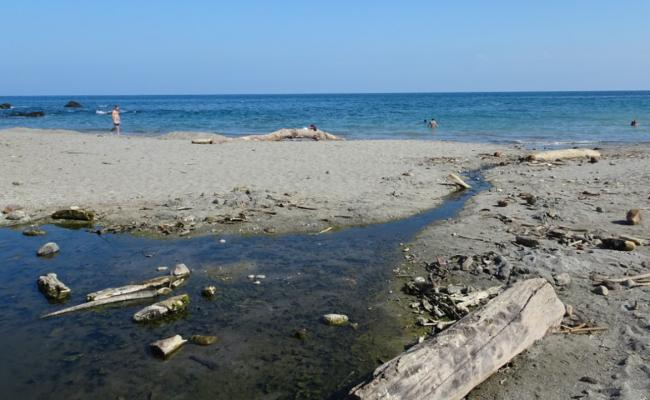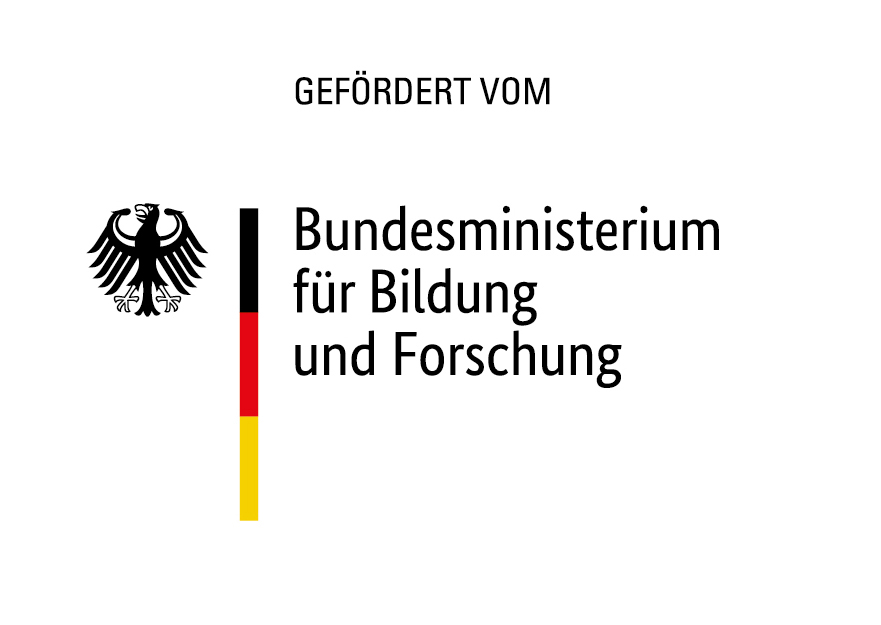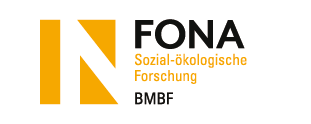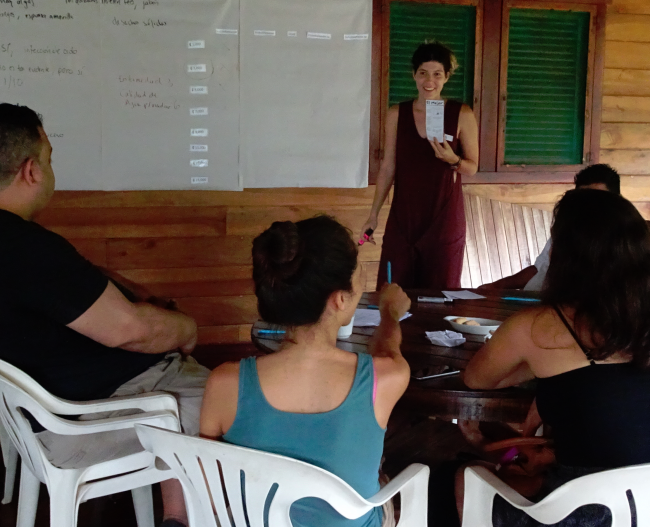Sustainable nature-based tourism brings the promise of economic prosperity coupled with environmental protection. However, there are many cases in which nature-based tourism instead leads to negative social, ecological and economic consequences. One example is that rapidly developing tourism in coastal areas often does not take wastewater management into account. Inadequately treated wastewater from tourism (e.g., hotels, restaurants) enters the sea, and affects marine ecosystems and human health. It also ultimately affects the nature-based tourism industry, where nature itself is a tourism draw.
The very characteristics that make small communities hotspots for nature-based tourism – their small size, their remote location, their proximity to the ocean – also reduces the number of viable wastewater treatment options. Tourism communities in the tropics are struggling with tourism-related wastewater pollution and are looking for appropriate management solutions.

A small stream with wastewater discharge entering the sea in a beautiful and remote nature tourism destination | Photo: Marie Fujitani
The project TransTourismus aims to support tourism communities in solving the challenges of wastewater management in a transdisciplinary framework. Together with various stakeholders from coastal tourism communities in the tropics, a holistic picture of tourism-related wastewater social-ecological impacts will be developed.
The ultimate aim is to support decision-making and suggest solutions for wastewater management through a deliberative and participatory process. In workshops and field studies, chemical, biological, ecological, economic, and social indicators will be developed in a participatory way, taking into account different marine ecosystems as well as the different priorities of community members and tourists.
The project is funded by the German Federal Ministry for Education and Science (BMBF)







